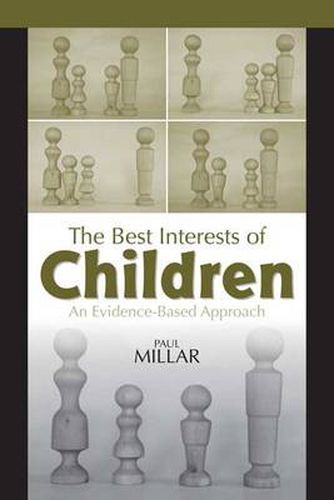Readings Newsletter
Become a Readings Member to make your shopping experience even easier.
Sign in or sign up for free!
You’re not far away from qualifying for FREE standard shipping within Australia
You’ve qualified for FREE standard shipping within Australia
The cart is loading…






The best interest of the child is an overriding principle in all matters of family law, especially in child custody cases. The Best Interests of Children links social theory with survey data to establish much-needed parameters for determining a child’s best interest.
In analyzing the determinants of family law and child development, Paul Millar utilizes information from the Centre for Justice Statistics as well as data from national surveys. Millar’s findings show that while the gender of caregivers is unimportant, family dynamics and parenting strategies are paramount: what matters is what parents do. His theoretical framework stresses the importance of relationships and posits that developmental problems related to divorce stem from lost adult-child bonds.
This book provides important criteria for determining the best interest of the child and concludes that the role of law in the lives of children must be to preserve their connections with those that love them.
$9.00 standard shipping within Australia
FREE standard shipping within Australia for orders over $100.00
Express & International shipping calculated at checkout
The best interest of the child is an overriding principle in all matters of family law, especially in child custody cases. The Best Interests of Children links social theory with survey data to establish much-needed parameters for determining a child’s best interest.
In analyzing the determinants of family law and child development, Paul Millar utilizes information from the Centre for Justice Statistics as well as data from national surveys. Millar’s findings show that while the gender of caregivers is unimportant, family dynamics and parenting strategies are paramount: what matters is what parents do. His theoretical framework stresses the importance of relationships and posits that developmental problems related to divorce stem from lost adult-child bonds.
This book provides important criteria for determining the best interest of the child and concludes that the role of law in the lives of children must be to preserve their connections with those that love them.